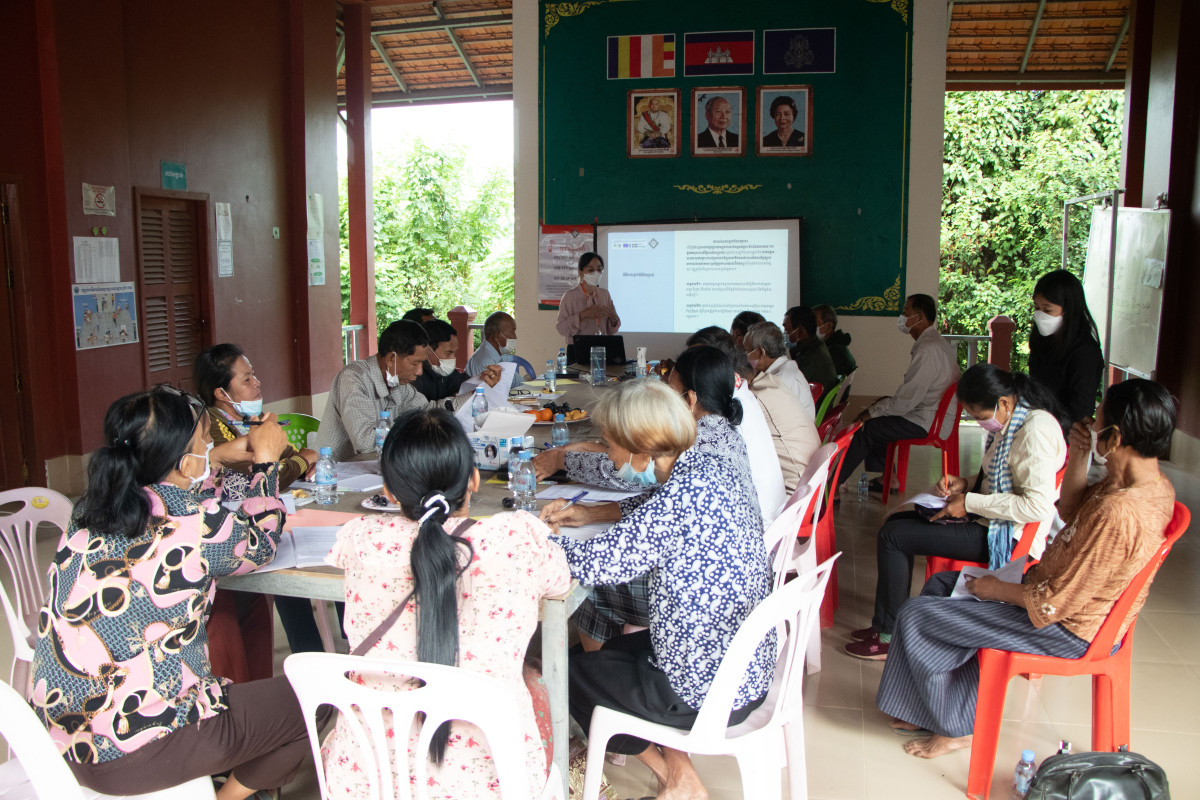Strengthening disaster preparedness in Cambodia’s Battambang Province
Published: Jan 28, 2022 Reading time: 4 minutes Share: Share an articleCambodia has been using the Early Warning System (EWS) 1294 to save lives since 2013. The EWS1294 platform, which notifies subscribers of impending natural disasters by sending mobile alerts, has been a huge success; more than 2,000,000 alerts have been sent to over 125,000 subscribers nationwide since the programme’s inception. Building on the success of EWS1924, the Royal Government of Cambodia, with support from People in Need (PIN), has introduced an innovative pilot project in Battambang Province, which aims to strengthen last-mile communication for disaster and emergency response by employing a system of public loudspeakers to help disseminate alerts. To ensure widespread uptake, PIN conducted a series of trainings for local authorities as well as community members in Battambang City from 29th November to 5th December 2021.

The pilot project
The “Strengthening Climate Information and Early Warning System in Cambodia to Support Climate Resilient Development and Adaptation to Climate Change” project, also known as the “Urban EWS Innovation” project, is part of the “CCCA-Phase 3” initiative, which is implemented by the Department of Climate Change within the General Secretariat of the National Committee for Sustainable Development (NCSD), and financially supported by the European Union, the United Nations Development Programme (UNDP), and the Government of Sweden. The “Urban EWS Innovation” project, also supported by the National Committee for Disaster Management (NCDM), will run for 18 months.
“Urban EWS Innovation” is being piloted in Krong Battambang, the second largest city in Cambodia, located along the Sangkae River. The city is exposed to intense flooding; in 2013, the city experienced record river depths of 14 metres, which caused damage to the tune of $355 million USD. By using an additional method for disseminating early warning alerts, the project aims to reach more community members. Alerts will be broadcasted on public address loudspeakers that can be heard within a 50-metre radius, thus notifying more people to impending natural hazards.
Lukas Laube, PIN Country Director in Cambodia, notes, “EWS1294 is a perfect example of how technology can be transformed to support more people, especially the most vulnerable groups in society. We are grateful for this new urban EWS initiative, which will ensure inclusive disaster preparedness, especially for the most vulnerable areas in the country. We look forward to accelerating innovation and technology for safety, first in Battambang, and later in the rest of Cambodia.”
As Cambodia continues to face yearly floods, reducing risks from rising waters in cities has become more critical. There are ongoing efforts to produce an urban elevation profile through the use of real-time kinematic (RTK) position and global navigation satellite system (GNSS) technology. In the meantime, the “Urban EWS Innovation” project is supporting vulnerable urban populations during flood events through last-mile communication channels.
Bunsamkaneka Chrin, PIN Project Manager in Cambodia, notes: “Through the innovation project, we do not only strengthen the communication platforms to disseminate early warning messages, but we also want to strengthen the knowledge and capacities of local authorities and different groups in the community.”
Training the community on the Urban EWS platform
To make the Urban EWS platform as effective as possible, PIN provided training to the municipality of Battambang, the Provincial Committee for Disaster Management (PCDM) in Battambang, and communities living near the loudspeakers. To ensure inclusive development and disaster preparedness, PIN also led training and outreach specifically for persons living with disabilities (PwDs) in the city’s flood-prone areas. Based on initial data collection, vulnerable households showed low preparedness and limited coping capacities, and they were unable to receive internet-based warnings during times of hazards.
Chrin explains: “The trainings are important as they allowed us to share the importance of inclusive disaster preparedness. The innovation project introduces a more sustainable way to deliver early warning messages through public loudspeakers. This means that those who do not have mobile phones or have only limited access to the internet can also receive timely warnings about natural disasters.”
A total of 190 attendees from the municipality and the PCDM joined the training, which focused on installing the loudspeakers and equipping attendees with the skills to operate, monitor, and maintain them. People living near the loudspeakers were also provided with training on the new infrastructure, so that they could assist with the monitoring and maintenance of the speakers.
Yoem Sarom, Lor Eth Village Chief, says: “The Urban EWS loudspeaker provides many benefits to locals, especially those who have not subscribed to EWS1294. They can receive early warning messages from the loudspeaker and prepare themselves and their families for flooding in a timely manner. As a village representative, I am so delighted to have this speaker installed. I would like to request that villagers living nearby the loudspeaker help take good care of it, so we can continue to receive alerts before every flood.”
A villager living near the loudspeaker notes: “We are glad to have this speaker alert us and our family members in advance of floods. We are ready to receive the very first alert message, and to share the information with those who might miss it.”
Malai, a PwD at Arruppe Centre, says, “Of course, we feel scared and worried for our safety and damage to our property when floods arrive unexpectedly. However, with the new loudspeakers, we feel safer than ever. Receiving alerts prior to a natural disaster gives us enough time to prepare ourselves, seek help from our family, and evacuate to a safer location.”



